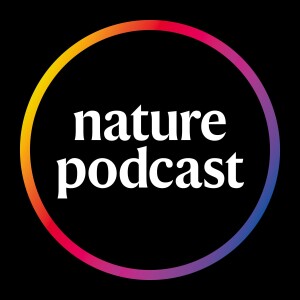
AI-enhanced night-vision lets users see in the dark
 2023-07-26
2023-07-26
In this episode:
00:46 How to see in the dark like it’s daytime
There are many methods for better night-vision, but often these rely on enhancing light, which may not be present, or using devices which can interfere with one another. One alternative solution is to use heat, but such infrared sensors struggle to distinguish between different objects. To overcome this, researchers have now combined such sensors with machine learning algorithms to make a system that grants day-like night-vision. They hope it will be useful in technologies such as self-driving cars.
Research article: Bao et al.
News and Views: Heat-assisted imaging enables day-like visibility at night
09:27 Research Highlights
Benjamin Franklin’s anti-counterfeiting money printing techniques, and how much snow is on top of Mount Everest really?
Research Highlight: Ben Franklin: founding father of anti-counterfeiting techniques
Research Highlight: How much snow is on Mount Everest? Scientists climbed it to find out
11:47 Briefing Chat
We discuss some highlights from the Nature Briefing. This time, the cost to scientists of English not being their native language, and the mysterious link between COVID-19 and type 1 diabetes.
Nature News: The true cost of science’s language barrier for non-native English speakers
Nature News: As COVID-19 cases rose, so did diabetes — no one knows why
Subscribe to Nature Briefing, an unmissable daily round-up of science news, opinion and analysis free in your inbox every weekday.
Hosted on Acast. See acast.com/privacy for more information.
More Episodes
 2024-11-02
2024-11-02
 2024-08-22
2024-08-22
Create your
podcast in
minutes
- Full-featured podcast site
- Unlimited storage and bandwidth
- Comprehensive podcast stats
- Distribute to Apple Podcasts, Spotify, and more
- Make money with your podcast
It is Free
- Privacy Policy
- Cookie Policy
- Terms of Use
- Consent Preferences
- Copyright © 2015-2024 Podbean.com


